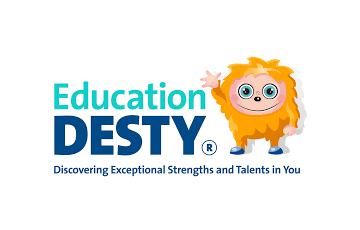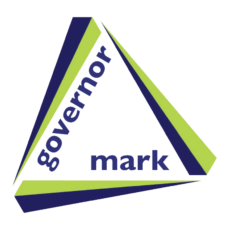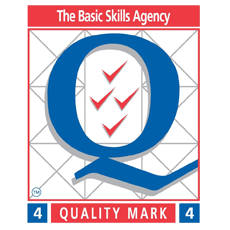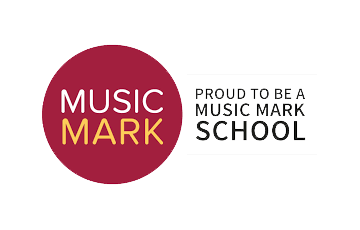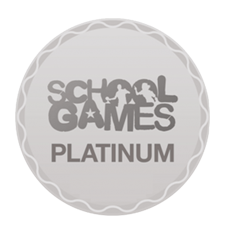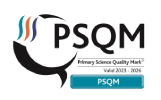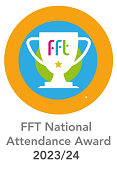Computing
Mr N Loftus - Computing Subject Leader
Mr M Stanway - Computing Link Governor

Intent
At Eccleston Lane Ends our intent for the Computing element of our school curriculum is to provide a high-quality computing education which equips children to use computational thinking and creativity to understand and change the world through digital means. We recognise that our pupils lives, both vocationally and socially, will increasingly take place within a digital medium and therefore, this subject is seen as vital in developing a broad range of skills that will enable not only digital competence but also ensure an understanding of how to be a responsible online citizen; our curriculum therefore places equal emphasis on teaching ‘Online Safety’.
The computing curriculum has been developed to ensure it’s progressive and allows our pupils to build on their knowledge, whatever their starting point, which will enable them to become digitally literate.
Our spiral curriculum ensures that key strands are being revisited throughout the year, building on prior learning and ensuring connections are being made between different units which provides the children with further opportunity to consolidate their learning. Computing in our school is led by key concepts, terms and vocabulary which provides opportunities to build a shared, consistent understanding.
The following key concepts are taught to ensure our children access a broad and balanced computing curriculum:
Computing systems and networks (systems, networks and how they are used, the internet, hardware and software)
Programming (interpreting, creating and evaluating algorithms, programming to accomplish specific goals, detecting and correcting errors)
Data and information (collecting, analysing, evaluating, presenting data and information)
Creating media (design and development, communicating and collaborating online, evaluating online content, respectful and responsible communication, presenting, creating content)
Implementation
At Eccleston Lane Ends, we use the Teach Computing scheme which allows computing to be taught using a blocked curriculum approach. This ensures children are able to develop depth in their knowledge and skills over duration of each of their computing topics. The National Centre for Computing Education scheme has been developed by a team of leading computing experts and then refined by Computing leaders across the Constellation Trust. The Teach Computing scheme ensures the full coverage of the National Curriculum following the identified programmes of study.
Knowledge and skills are mapped across each topic and year group to ensure systematic progression. The implementation of the curriculum also ensures a balanced coverage of computing systems and networks, creating media, programming and data and information. The children will experience all four strands in each year group, but the subject knowledge imparted becomes increasingly specific and in depth, with more complex skills being taught, thus ensuring that learning is built upon. For example, children in Key Stage 1 learn what algorithms are, which leads to them to the design stage of programming in Key Stage 2, where they design and debug programs, explaining their thinking behind their algorithms. Our pupils draw conclusions and use computational vocabulary to discuss and present their findings in a range of different ways.
EYFS
Computing in EYFS ensures our children will enter Year 1 with a strong foundation of knowledge but it will also ensure that children develop listening skills, problem-solving abilities and thoughtful questioning.
In the ever-changing, technologically advanced world we live in, we need to expose our children to technology from a young age and make sure they are fluent in computer literacy and e-safety.
In EYFS, computing is based around play-based, unplugged activities that focus on building listening skills, curiosity and creative problem solving.
Early Years Computing includes:
Taking a photograph with a camera or tablet
Searching for information on the internet
Playing games on the interactive whiteboard
Exploring an old typewriter or other mechanical toys
Using a Beebot
Watching a video clip
Listening to music
Exploring technology in this child-led way means that they will develop a familiarity with equipment and use vocabulary related to the subject – this will provide our children with a strong start in Key Stage One.
Impact
The impact of our curriculum is that by the end of each year, the vast majority of pupils have sustained mastery of the content, that is, they remember it all and are fluent in it as well as some pupils having a greater depth of understanding. We track carefully to ensure pupils are on track to reach expectations of our curriculum.
The impact measure of achieving our school aims in the widest sense is very important. By ensuring that pupils develop effectively into well-rounded individuals who embody our values, have a thirst for learning and are well-prepared for the next stage of their education. In turn, they become valuable future citizens as the desired impact and a result of an outstanding educational offer at Eccleston Lane Ends.
By the end of EYFS, pupils will:
Be able to explore technology in a safe and often child-led way developing a familiarity with equipment and vocabulary allowing them to have a strong start in Key Stage 1 computing and all that it demands. Computing in EYFS is centred around play-based, unplugged activities that focus on building pupils’ listening skills, curiosity, creativity and problem solving. Pupils will be able to take a photograph with a camera or table, play games on the interactive whiteboard or on iPads, use a BeeBot, watch video clips and listen to music.
By the end of Key Stage 1, pupils will:
Be able to identify technology and how its responsible use improves our world in school and beyond. In our creating media topic, our pupils can digitally paint, write and format text, capture and change digital photographs and create musical compositions. Pupils will also be able to create and debug programs using logical reasoning along with designing algorithms and programs. Pupils will be able to group and label data and represent information using simple pictograms.
By the end of Key Stage 2, pupils will:
Understand the interrelated networks within computers, including the World Wide Web and how the Internet can be used to communicate and be searched to find information. Pupils will develop the skills to create and develop stop-frame animations, edit photos, audio and videos, create vector drawings and 3D models and be able to design their own webpages. Programming skills will be further developed through selection, variables in games and sensing. Pupils will develop their data and information skills further through their creation and use of flat-file databases and spreadsheets.


.png)
